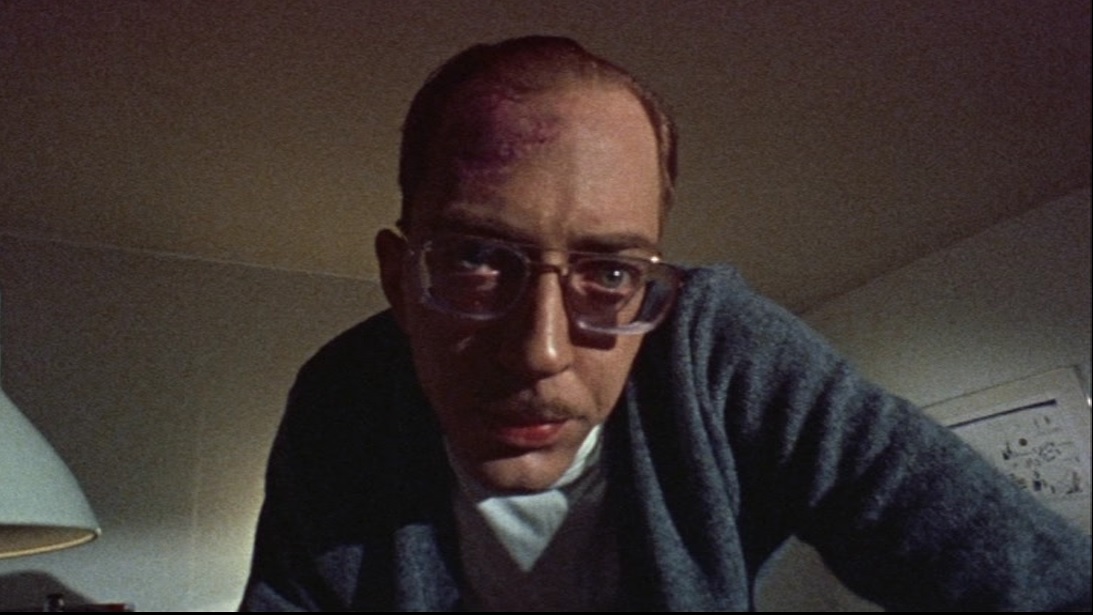HUSBAND & WIFE GO DEEP, DISCUSS 7 DE PALMA FILMS ON LENGTHY WAGES OF CINEMA PODCAST

"William Finley is one of the great untapped resources of American cinema," Korey Hughes says to her husband, Jack Gattanella, at one point during a discussion about Sisters on episode 151 of the podcast The Wages Of Cinema. "I am so angry that no other director besides De Palma has fully tapped the amazing wealth of William Finley."
That's just one of the fine moments in this two-hour-and-forty-minute podcast discussion between Gattanella and Hughes of seven Brian De Palma films. The podcast episode runs about the length of De Palma's Scarface, yet that film is not one of the ones included. The films the pair watched and then discussed on this episode are Sisters, Phantom Of The Paradise (Hughes remarks that she admires and appreciates how De Palma made Phantom a tight and lean 90-minute film), Dressed To Kill, Body Double, Raising Cain, Snake Eyes, and Femme Fatale.
During the discussion on Raising Cain, Hughes has a bit of an epiphany:
Korey: I was saying when we first started this, that a lot of De Palma's movies, like Tarantino's movies, are obviously made by someone whose life revolves around movies. Like, I feel like De Palma's life on a personal level, is dominated by the pop culture he's consumed. And one thing I was thinking is that he has all these movies about multiple personalities, and they're all highly entertaining, and not even remotely psychologically plausible. And I think the reason for that is De Palma is filtering multiple personalities through pop culture. So he's not engaging with actual research on this condition in actual people. His movies address how pop culture addresses multiple personality disorder. So I feel like he's riffing on how we as a culture process this concept. Not the actual concept itself.Jack: Well, in the case of Raising Cain, I watched an interview with him, and he said that he had a friend who was a child psychologist, and was trying to do tests about how children respond to this or that, and trauma and stuff like that. And I think in his head, he then bounced off that into what this movie became. So he starts from a very basic place, and then...
Korey: Yeah, I think that's what makes them so melodramatic and heightened, is that he's not telling a story about multiple personalities. He's telling a story about the stories we tell about multiple personalities. And I'm thinking that's what I think really unites his treatment of this concept in Sisters, in Dressed To Kill, in Raising Cain, is he's telling a story about the stories we tell.



